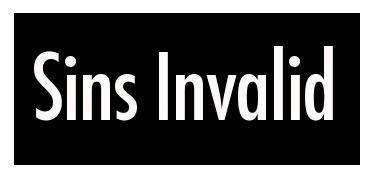Criptionary by Maria Palacios
As we release our doc to home purchasers, we also want to highlight the FAB new work of a member of the Sins Invalid crew, Maria Palacios.Maria Palacios’ new book Criptionary: Disability Humor and Satire breathes fresh air into crip culture with wit and an intense love for disability community. Maria says “I simply want to share it with the world and allow its political incorrect soul do its thing.” Like the Facebook page! ).We interviewed Maria about her book and her process behind it:What is your relation to the word "crip" politically?As a person with a disability, the word crip represents outspoken political rebellion since it takes the word cripple apart and allows it to represent pride, survival and strength while creating the political incorrectness that allows wounds caused by the negative tone of the original meaning to show a different aspect of disability…one that involves taking pride in our socially perceived broken bodies and lives.What gave you the first inspiration for the book?I tend to get obsessed and fall in love with ideas and projects. This is one that was actually born out of another idea while hanging out with Sins Invalid’s very own Leroy Moore during one of my stays for a Sins show. Leroy had shown me a book on 101 sexual positions and while looking at it, we came up with the idea of re-creating it with a crip twist by changing the illustrations to represent the sexiness, sexuality and beauty of persons with disabilities. We must have spent four or more hours laughing so hard that our stomachs hurt as we came up with at least forty different terms matched with a visual idea to represent them. Our thought was to connect with a crip artist who could bring our words to life in matching illustrations. While the idea itself was genius, distance and time between us prevented us from pushing it forward. Although none of the terms we came up with that night started with the word "crip", the concept of putting together a list of some sort stayed with me for a while. I had already been calling Berkeley Criptopia because it is the birth place of the Disability Rights Movement, so I started listing word after word and before I knew it, in a matter of days, I had over three hundred definitions and Criptionary was born. It sat forgotten in a notebook for over a year before actually taking the form of what it has become. I’m very proud of this little book, and very honored to share it with the crip community.Many words and definitions in your book cover the discrimination and ableism people with disabilities face on the daily basis. What do you want the reader to come away with after reading some of these definitions?I want people with disabilities who read this book to identify with the twisted intention of its definitions…to own the sense of justice and humor attached to its energy. I want the able-bodied readers to gain exposure to the barriers and realities persons with disabilities still deal with in 21st century society. I want both disabled and able-bodied to have a good laugh and enjoy the silliness and outrageous humor intertwined in some of the definitions.Your critiques of the disability rights movement and disability policy/services are great. Has there been any feedback from the disability community positive and negative about some of these definitions in the book?Most of the feedback has been positive. Interestingly, it seems that the older crips (forty and up) understand it and appreciate it immediately. The younger generation of persons with disabilities not always relate to it right away perhaps because most of them have not had to fight the political struggles of the older generations. So far, the only “bad” feedback (if I can call it that) was from somebody with a non-visible disability who thought it was pathetic for me to try to convince people that word "crip" can possibly have a positive aspect to it. Considering his feedback was based only on a few sample definitions instead of the whole book, I did not take it too hard. I suppose we cannot, and will not, please everybody, but I simply hope everybody reading this book understands that it was created from a position of empowerment and shared with the world with the intention of educating, entertaining and advocating for disability justice and positive change.Explain the importance of you promoting disability beauty, self-worth and sexuality in the book.One of the most important missions in my crip life is to promote beauty and sexuality. Criptionary is definitely created through the lens of such, and definitions throughout the entire book focus on bringing out how truly sensual, sexual and powerful we are as persons with disabilities. Below are some sample definitions.cripspook /krɪpˈspuk /: to be shocked by a disabled person's average normalitycripsuality /krɪpˈsjʊəl.ə.ti /: socially misunderstood sensuality exuding from a crip's body and mindcriptemple /krɪpˈtem·pəl /: the disabled bodycriptop /krɪpˈtɒp /: sexual position where the crip is on topcriptoversy /krɪpˈtoʊˌvɜr·si /: controversy surrounding the sexual rights of people with cognitive disabilitiescripspooning /krɪpˈspuːn-ɪŋ /: snuggling with a lover whose body doesn't quite fit in the usual snuggling positionscriposexual /krɪpˈoʊˌsek·ʃu·əl /: crips who feel attracted to other crips of the same gendercripnival /krɪpˈnə·vəl /: a carnival that celebrates crip beauty in an attempt to heal the wounds left by a history that used people with disabilities as circus shows, panhandlers or other forms of demeaning entertainment
